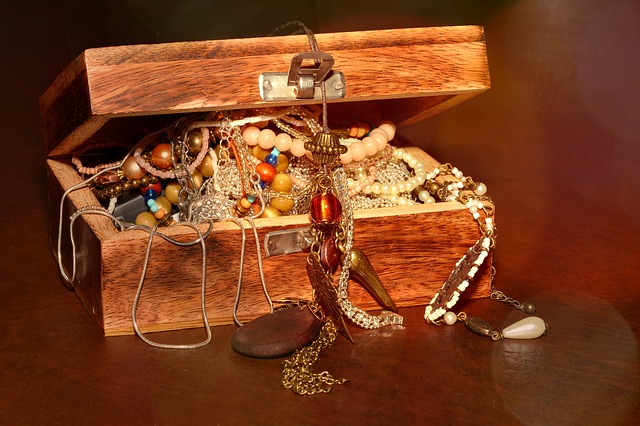Greek heroes, nicknames and adjectives Posted by Ourania on Oct 5, 2018 in Culture, Vocabulary
The Greek literature and mythology are rich in characters whose predominant traits are linked to their name. Nowadays, we use the names of these heroes as adjectives to describe a person with the same traits. In this post, there is a list of the most common names. The examples are written in colloquial Greek and cannot be literally translated.
#1.Ψωροκώσταινα (Psorokostena): It was is the nickname of Panoraia (Πανωραία), a rich woman who actually lived in Minor Asia. In 1821, after her husband and children were killed by the Turks, she ended up in Nafplion and worked as a washerwoman. Although she was very poor, she spent the little money she earned to protect the orphan children whose fathers had died fighting the Turks. In 1826, there was a fund raising to support the besieged people of Missolonghi. The Greeks were poor and hesitated to offer money. Ψωροκώσταινα was the first to give her only assets, a ring and a coin, motivating the others to contribute.
Nowadays, the term Ψωροκώσταινα is used to describe Greece as an impoverished country.
Example: Όλοι οι νέοι επιστήμονες φεύγουν αφού δεν υπάρχει μέλλον στην Ψωροκώσταινα. / All the young scientists migrate since there is no future in poor Mother Greece.
#2.Καραγκιόζης (Karagiozis, Karagöz in Turkish): The hero of the Turkish and the Greek Shadow Theater. He is seedy, lazy, witty and funny. We use this name to describe a person who plays the fool, or as a derogatory term of address.
Examples:
- Γιαννάκη κάθισε στη θέση σου και σταμάτα να κάνεις τον καραγκιόζη! / Yannaki, sit down and stop playing the fool!
- Τι κάνεις, ρε καραγκιόζη; Πας καλά; / What are you doing, you fool? Are you insane?
#3.Βεληγκέκας: He is a character of the Shadow Theater. He was the pasha’s adjutant who used to bully and to beat up Karagiozis. He represents the executive power. It is used to describe a rude and hot-tempered man.
Example:
Ο καινούριος προϊστάμενος έχει τη φήμη βεληγκέκα. Τσακώνεται συνέχεια με το προσωπικό ειδικά όταν ζητάνε άδειες. / They say about the new chief that he’s a toughie. He constantly argues with the stuff, especially when they ask for a time off.
#4.Γερο-Λαδάς (gero-Ladas): Old Ladas is a character form Nikos Kazantzakis’ novel Christ Recrucified (Ο Χριστός ξανασταυρώνεται). Ηe is a wealthy old man who leaves in poverty because he doesn’t want to spend his money. We use it to refer to a stingy person.
Example:
– Τα ‘μαθες; Η γυναίκα του Γιάννη είναι άρρωστη κι εκείνος δε φωνάζει γιατρό. «Δεν έχει τίποτα» λέει. / Did you hear what happened? John’s wife is ill and he didn’t call the doctor. “She’s ok” he says .
– Ρε την καημένη τη γυναίκα… Ε, δεν τον ξέρεις τι γερολαδάς είναι; / Poor woman… He’s such a penny pincher.
#5.Εξηνταβελόνης: this is another name for a stingy person. Εξηνταβελόνης is a comedy written ιν 1816, by the scholar Konstantinos Economou (Κωνσταντινος Οικονομου), a representative of the Neo-Hellenic Enlightment. Εξηνταβελόνης, whose name literally means “sixty needles” (εξήντα βελόνες), was a rich widow who lived in Smyrna. He deprived his children and servants from the basics needs, even food, in order to increase his assets.
Example:
- Η Μαρία είπε ότι θα κάνει πάρτι για τα γενέθλιά της. / Maria said she will have a birthday party.
- Σιγά μην κάνει πάρτι η εξηνταβελόνα… Κάθε χρόνο τα ίδια λέει. / Like hell she will… She’s so cheap. Every year she says the same thing.
#6.Κέρβερος: Cerberus was a mythical dog of Hades and guarded the gates of the underworld. It is used to mean a cruel and strict person, usually a parent or a teacher.
Example:
Η δασκάλα μας είναι κέρβερος. Στο μάθημά της δεν ακούγεται κιχ! / Our teacher is really strict. There’s not even a single whisper heard during the lesson.
#7.Νάρκισσος: in Greek mythology, Narcissus was a handsome young man who fell in love with his own idol after he saw his reflection on a pool. In psychology νάρκισσος is used to describe a person suffering by narcissistic personal disorder.
Example:
Η σχέση με έναν νάρκισσο είναι ολέθρια. / The relationship with a narcissist is devastating.

Build vocabulary, practice pronunciation, and more with Transparent Language Online. Available anytime, anywhere, on any device.






Comments:
Leticia:
Great post, very interesting to see the origin of these adjectives.
Ourania:
@Leticia Thank you for your interest!